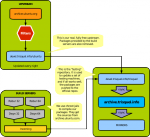Obsolete software in the Trisquel repos
- Anmelden oder Registrieren um Kommentare zu schreiben
I know I've complained about this before, but there are a lot of dead projects that need to be pruned out of the Trisquel repos. A good example is Miro, a BitTorrent client/ media player (like FrostWire or Tribler) that was developed by the Participatory Culture Foundation. The last version the PCF released was 6.0, in about 2013. According to OpenHub, it hasn't had any active commits for about 3 years. The software doesn't really work and the project is dead. Why is this even in the Trisquel repos at all?
Also, the version of Miro in the repos is 4.0.4. If 6.0 came out in 2013, I can only imagine how old the 4.0 code is, and I've started to notice a similar problem with a lot of apps on Trisquel. They lag far behind even other Ubuntu derived distros like Mint, which in turn lags a fair way behind Debian, which lags a fair way behind the releases from the open source communities. This is why people want things like Flatpak/ Snaps.
The Miro situation also points to a deeper problem in the free code software world, that of zombie products. The PCF website is still up, and the GetMiro website is still up and distributing binaries of Miro 6.0 and other unmaintained software to any unsuspecting Joe or Jane User that stumbles upon it. This is likely to leave some people with a very bad impression of free code software and open source development when they work out they've been given rotten corn.
Every attempt I've made to contact their devs or sysadmins has failed. The impression I'm forming is that the entire organisation has gone dark, without making any kind of public announcement or giving any warning to users about the lack of maintenance on their apps. Joke is on the various Foundations that paid them to develop their now abandoned software for years, but it's also on all of us. Because when people take money to develop free code and bugger off, it makes funders cynical about donating to other free code projects, including really essential ones like OpenSSL or OpenPGP/ GNUPG.
I'm not sure exactly what can be done about all this. I know that a tremendous amount of often unpaid work goes into maintaining free code, and open source projects. But I've posted her before a description of a stop-gap solution that involves developing criteria for evaluating the apps in the repos, and making sure the extra-for-experts ones can only be installed using extra-for-experts means (eg command-line-only tools can only be installed from the command line).
Anyway, I just purged Miro from all the OS instances I'd been trying to test it in, which allowed me to remove a whole lot of old dependencies (the horor!). Hopefully this will make my systems at least a bit faster, more stable, and more secure.
"Why is this even in the Trisquel repos at all?"
Because it's in Ubuntu's.
http://packages.ubuntu.com/search?keywords=Miro&searchon=names&suite=all§ion=all
But if you notice it's not in later versions so won't be in Trisquel 8.
Trisquel used to follow each Ubuntu release that came out every 6 months, and so had more recent versions, but this proved to not be sustainable due to a lack of people power. Are you offering to help out and accomplish this?
Why is any people power needed, at least to keep software updated? Why can't the Trisquel repos simply pull down whatever the latest version is from Ubuntu as soon as Ubuntu's are refreshed?
That might work *IF* Trisquel were nothing more than a copy of Ubutnu. But it's not. So it doesn't. That picture how how Trisquel is made is probably helpful. :)
I'm not talking about the operating system.
I'm talking about the apps in the repositories.
Since the apps that have been included in Trisquel have already been screened for freedom, what's the problem with auto-updating them from the Ubuntu repositories?
The update can bring new (freedom or otherwise) issues. And the solution to those issues is not always to remove the package. Trisquel's developers fix many issues with package helpers, which must sometimes be modified because of the update: https://devel.trisquel.info/trisquel/package-helpers/tree/flidas/helpers
If an old piece of software is in the repository and does not give any work, it should be kept (although it should not be in the default system since it is not a good medium-term choice).
For instance, I do not know why PDFedit was removed. Sure it is based on Qt3, the last stable version is seven or eight year old and there may not be any future release... but it apparently perfectly works: I take the package from http://packages.ubuntu.com/precise/amd64/pdfedit/download and install it because it is the easier solution to select elements in a PDF and remove them.
There are imperfect solutions to this. One common solution is to add PPAs to get the packages you want. Another thing some people do, including myself, is to install the GNU Guix package manager and install apps with that. GNU Guix is rolling release, so everything is up to date.
jxself wrote :
"Are you offering to help out and accomplish this?"
How can we help ? Do we need precise technical knowledge and spend a lot of time to care about not bringing issues ? Is it just a copy-paste task ?
I can help by updating some software I know, but it's maybe not that much helpfull. Maybe you need someone who spends a lot of time checking softwares versions, licenses and dependencies.
- Anmelden oder Registrieren um Kommentare zu schreiben


